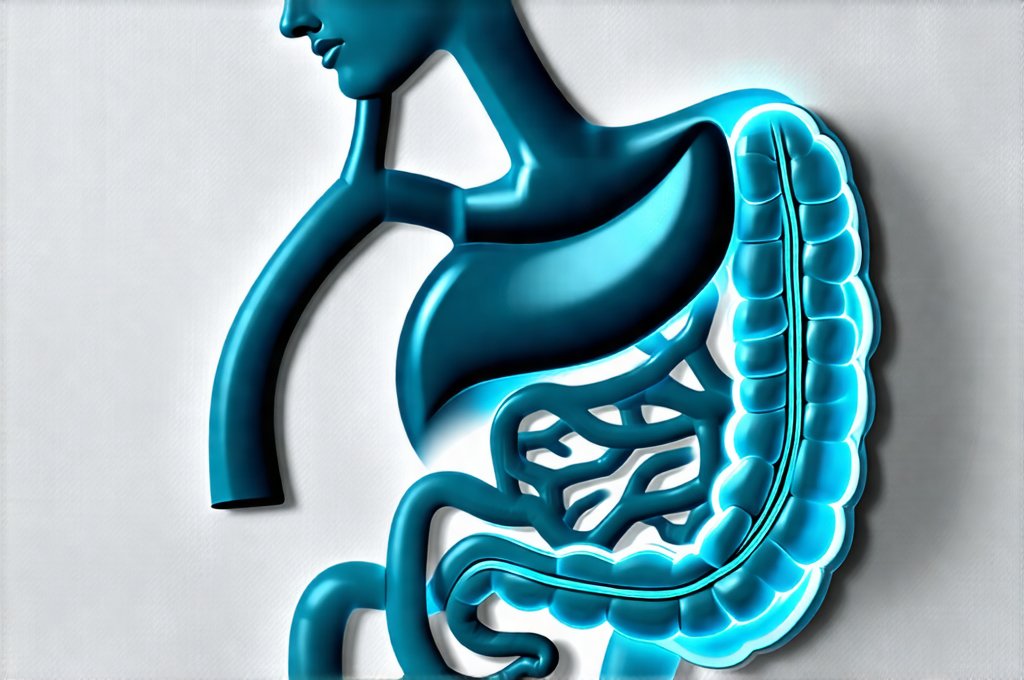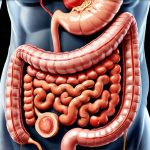As we journey through life, our bodies undergo countless changes – some subtle, others more pronounced. Often overlooked amidst discussions about joint health or cognitive function are the significant shifts that occur within our digestive system and its associated gas production. These aren’t merely inconveniences of aging; they represent fundamental alterations in how efficiently we process food and absorb nutrients, impacting overall wellbeing and potentially leading to discomfort and even nutritional deficiencies. Understanding these changes is crucial for adapting dietary habits and lifestyle choices to maintain optimal health as we age.
The digestive system, a complex network responsible for breaking down food and extracting essential components, isn’t static. Over decades of use, the natural wear-and-tear, coupled with hormonal shifts and potentially reduced physical activity, leads to decreased efficiency across multiple stages of digestion. This can manifest in various ways, from altered gut motility (the speed at which food moves through the digestive tract) to changes in the composition of gut microbiota – the trillions of bacteria that play a vital role in digestion and immunity. Consequently, gas production, a natural byproduct of digestion, often increases or becomes more troublesome, contributing to bloating, abdominal discomfort, and social anxieties. The interplay between these factors is complex, but recognizing them allows for proactive management strategies. Understanding the effect of aging on the system can help proactively manage symptoms.
Age-Related Changes in Digestive Physiology
The aging process profoundly impacts the mechanics of digestion itself. One of the most noticeable changes is a decline in peristalsis, the wave-like muscle contractions that propel food through the digestive tract. This slowing down can lead to constipation, which isn’t just an uncomfortable symptom but also influences gas production. When food lingers longer in the colon, bacteria have more time to ferment undigested carbohydrates, generating increased amounts of gas. Furthermore, the muscles of the lower esophageal sphincter – the valve between the esophagus and stomach – may weaken with age, increasing the risk of acid reflux, which can contribute to bloating and discomfort. It’s important to understand digestive pressure as it relates to overall digestive health.
Beyond motility, there’s a reduction in the production of digestive enzymes as we age. Enzymes are essential for breaking down food molecules into absorbable units. Lower levels mean that more complex carbohydrates and proteins might remain undigested, reaching the colon where bacterial fermentation occurs, again boosting gas production. Similarly, decreased stomach acid production can impair protein digestion and nutrient absorption, while also potentially altering the gut microbiome. This alteration isn’t always negative, but imbalances in gut bacteria are frequently linked to increased bloating and digestive issues.
Finally, structural changes within the digestive tract itself occur over time. The mucosal lining of the intestines may thin, reducing its absorptive capacity. The overall health and integrity of the intestinal barrier – often referred to as “leaky gut” when compromised – can also decline, impacting nutrient absorption and potentially triggering inflammatory responses that exacerbate digestive symptoms. Maintaining a healthy lifestyle and diet are paramount in mitigating these effects. Considering aging on function is vital for long-term health.
The Role of Gut Microbiota in Aging Digestion
The gut microbiota – the community of microorganisms residing in our intestines – undergoes significant changes with age. In younger individuals, there’s generally greater diversity within the gut microbiome, which is associated with better health and resilience. As we age, this diversity tends to decrease, leading to a less robust and adaptable microbial ecosystem. This reduction can be influenced by factors like dietary shifts, medication use (especially antibiotics), reduced physical activity, and chronic stress. A less diverse microbiota may struggle to efficiently process food, increasing the likelihood of undigested carbohydrates reaching the colon for fermentation.
The composition of the gut microbiome also changes with age. There’s often a decrease in beneficial bacteria – like Bifidobacteria and Lactobacilli, which aid digestion and produce short-chain fatty acids that nourish the intestinal lining – and an increase in potentially harmful bacteria. This imbalance, known as dysbiosis, can contribute to inflammation, impaired immune function, and increased gas production. It’s important to note that the gut microbiome is highly individual, influenced by genetics, lifestyle, and environmental factors, making it challenging to define a “healthy” microbiome universally.
Supporting a healthy gut microbiota through dietary interventions – such as consuming prebiotic-rich foods (onions, garlic, bananas) and probiotic-rich foods (yogurt, kefir, sauerkraut) – can help restore balance and improve digestive efficiency. However, probiotic supplementation should be approached cautiously and ideally discussed with a healthcare professional to determine the most appropriate strains for individual needs. The effects of dairy on gut health are also worth considering.
Dietary Adjustments for Enhanced Digestion
Adapting dietary habits is often the first line of defense against age-related digestive issues. Reducing intake of gas-producing foods can provide immediate relief, but focusing solely on elimination isn’t always sustainable or desirable. Instead, a more nuanced approach that prioritizes easily digestible foods and mindful eating practices is generally more effective. Foods known to contribute significantly to gas include:
- Beans and lentils
- Cruciferous vegetables (broccoli, cauliflower, cabbage)
- Carbonated beverages
- Artificial sweeteners
- High-fructose corn syrup
However, these foods are also nutritious, so complete avoidance isn’t always necessary. Small portions, proper cooking methods (soaking beans overnight), and pairing with digestive aids can help minimize discomfort. Prioritizing fiber intake is crucial, but choosing soluble fiber sources (oats, applesauce) over insoluble fiber (wheat bran) might be easier on the digestive system.
Hydration plays a vital role in maintaining healthy digestion. Water helps soften stool, facilitating bowel movements and reducing constipation. Aiming for at least eight glasses of water per day is generally recommended, but individual needs vary based on activity level and climate. Finally, adopting mindful eating practices – such as chewing food thoroughly, eating slowly, and avoiding distractions – can significantly improve digestion by giving the digestive system time to process food effectively. Understanding stress on health is also key for a holistic approach.
Managing Gas Production Through Lifestyle Changes
Beyond diet, several lifestyle changes can help manage gas production and improve digestive efficiency in older adults. Regular physical activity is essential for stimulating peristalsis and promoting gut motility. Even moderate exercise, such as walking or swimming, can make a significant difference. Stress management techniques – like yoga, meditation, or deep breathing exercises – are also beneficial, as stress can negatively impact digestion and exacerbate symptoms.
Addressing underlying medical conditions that may contribute to digestive issues is crucial. Conditions like diabetes, hypothyroidism, and celiac disease can all affect digestion and gas production. Regular check-ups with a healthcare professional are essential for identifying and managing these conditions. It’s also important to review medications with a doctor or pharmacist, as some drugs can have side effects that impact digestion.
Finally, paying attention to posture during meals can aid digestion. Sitting upright allows gravity to assist in the digestive process. Avoiding lying down immediately after eating can also help prevent acid reflux and bloating. A holistic approach encompassing dietary adjustments, lifestyle changes, and appropriate medical care is the most effective strategy for managing age-related digestive challenges. Additionally, be mindful of high-fat diets and their impact on digestion. Furthermore, consider alcohol and caffeine consumption as it relates to digestive health.


















